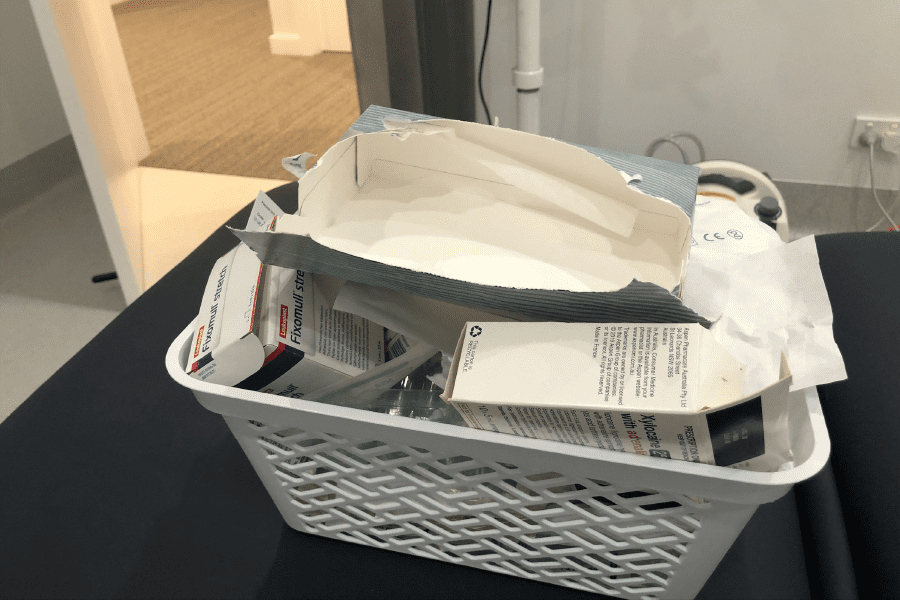Authored and submitted by Dr Paddy McLisky, FRACGP.
If you have an article or a letter that you would like to submit for publishing consideration, please click here.
As a General Practitioner working primarily in Skin Cancer Medicine (First Light Healthcare, Ballina), I am disheartened by the amount of waste I produce at work every day.
I recently realised that the majority of my waste was either clear soft plastic or paper packaging. As we all know, items like syringes, needles, sterile gauze and sterilised instruments are generally packaged in a half paper/half plastic package.
Of particular significance is the fact that doctors generally set up for procedures on a clean workbench, with clean hands, and open various packages prior to even touching my patient. In this sense, the paper and plastic packaging which is opened (and immediately becomes waste) is much cleaner than most civilian household waste such as food packaging.
Which raises the question ’If I can recycle my paper and soft plastic at home, why can’t I do it at work?’
By collecting the paper and plastic waste generated at work (see images), I have found that I can significantly reduce the amount that goes into my clinic garbage bin. Naturally, any contaminated waste goes into clinical waste (biohazard) bin and sharps are disposed in designated containers. But most of what I use can theoretically be recycled.
The next step (recycling) poses two challenges.
The first is that our local council does not recycle soft plastic and the REDcycle program (operated through Woolworths) refuses to take medical/industrial plastics due to a fear that contamination would put REDcycle staff at risk.
I have emailed REDcycle and they explained that this policy remains in place despite my assurance that my plastic is clean and dry. So it seems that an alternative recycler (or at least a collection service) is required.
Replas is a company which actually recycles the plastic REDcycle collects, and I plan to contact Replas to investigate other options.
The second challenge is that the ‘paper’ component of our medical packaging will sometimes contain a plastic liner to assist in waterproofing. While it is tempting to just throw it in the clinic yellow top recycling bin for curbside collection, this may not always be appropriate. Companies such as BD and Multigate have been kind enough to share the constituents of their packaging with me, so that I can investigate recycling options for plastic and paper components. I plan to touch base with local council initially, as I know that all sorts of glossy magazines etc go into curbside recycling.
I am writing this article to ask if practitioners and practices in the region would be interested in partaking in collection of clean soft plastics and paper, if a collection/recycling service could be established.
The separation of paper and plastic is simple and really adds no time to my workload (see images). It is very satisfying to see less garbage going to landfill, but for now I am stockpiling in anticipation of finding a willing recycler.
I plan to consult industry stakeholders and try to organise a collection/recycling system which would potentially service multiple practices in the region. I will continue to research how packaging in General Practice can be recycled. I am fortunate to have the guidance of a chemical engineer with vast experience in plastic recycling.
As a doctor, parent and community member, I feel that we have a responsibility to minimise the impact our workplace has on our environment. Plastic waste is a ubiquitous global problem and landfill contributes significantly to carbon emissions.
If readers are willing to consider participating in such a recycling program, please email me: [email protected]
I would also love to hear any suggestions or alternative solutions or innovations which are currently underway.
Dr Paddy McLisky, FRACGP



